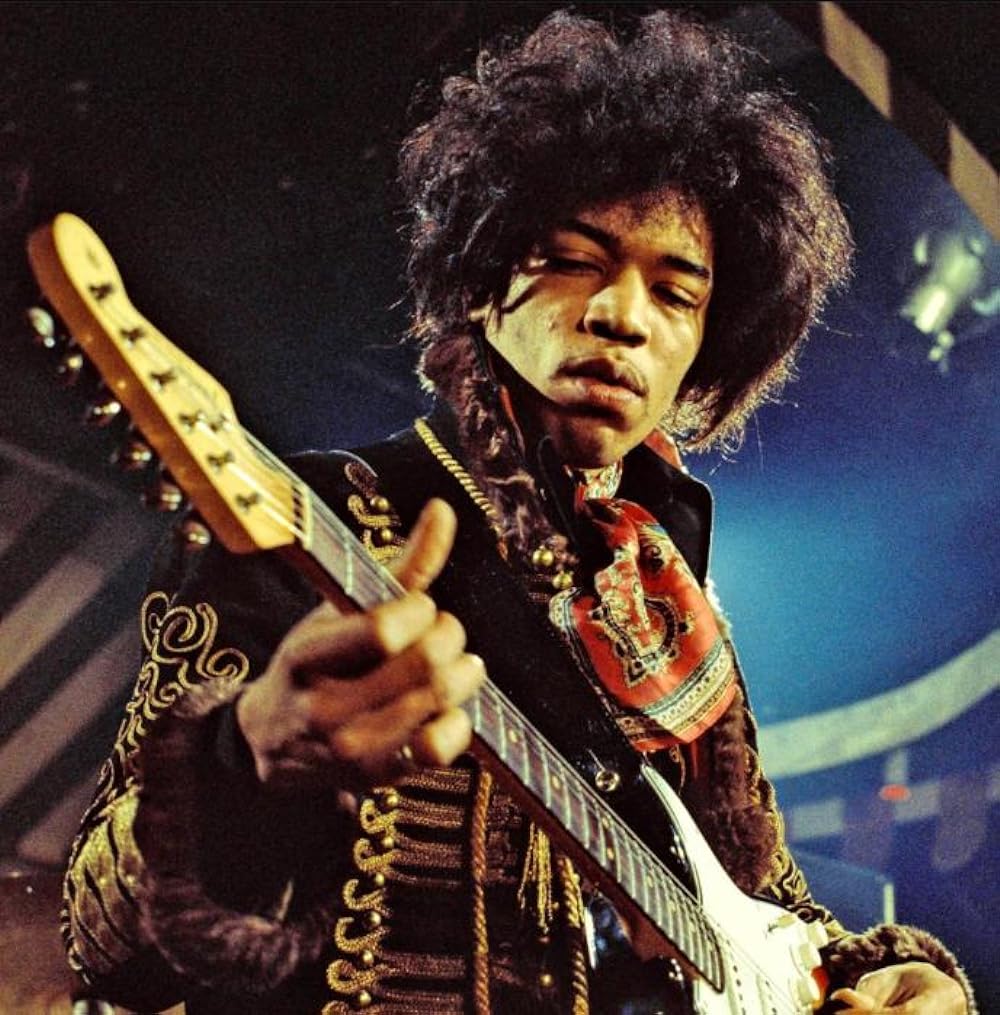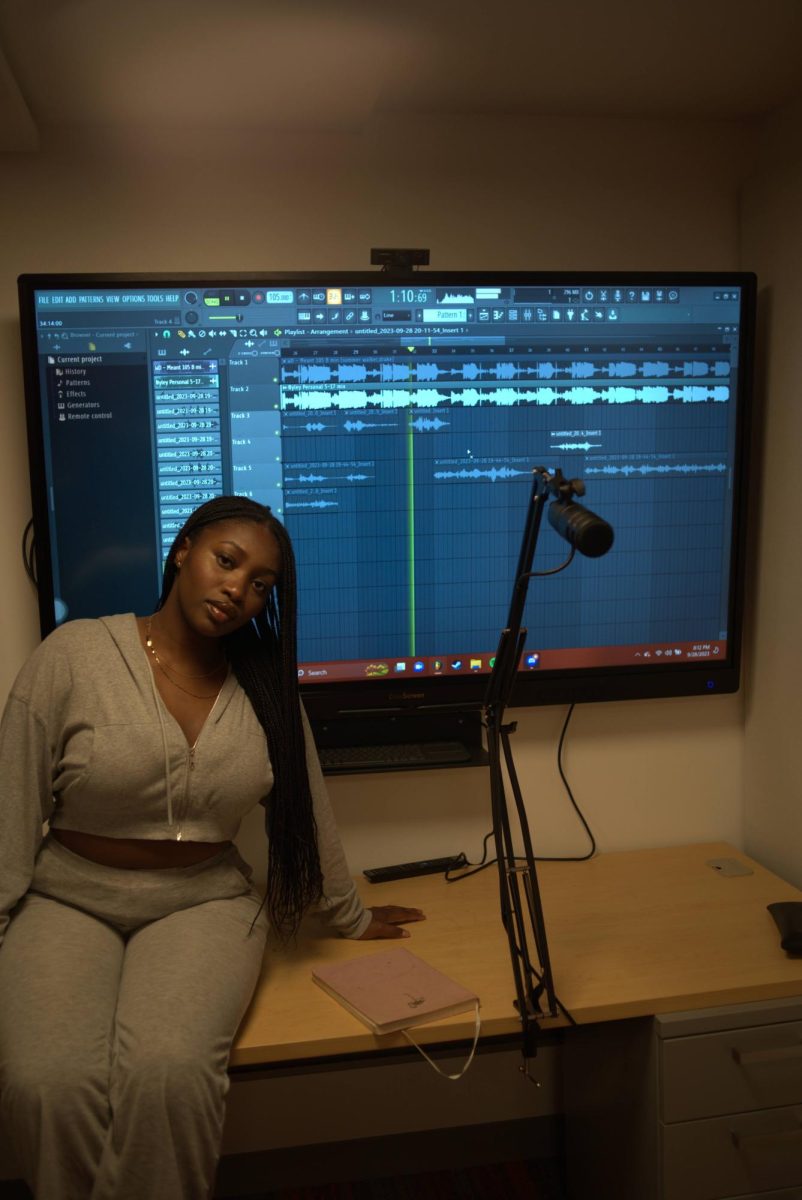Most people know Jimi Hendrix as one of the greatest — if not the greatest — guitarists of all time. During his short but generation-defining musical career, he changed the way people see the electric guitar; not just as an instrument, but as an extension of the musician’s soul. With this, Hendrix altered the course of music forever, but not only as a guitarist. His lasting impact on the music industry spans much more than that.
Just two years before he died in 1970, Hendrix commissioned the creation of his own recording studio. The studio was christened Electric Lady Studios, after Hendrix’s “Electric Ladyland,” and the culture surrounding the studio shaped the quality of music we listen to today.
Located in Greenwich Village, New York City, the building was originally a nightclub called The Generation. The Generation was frequented by Hendrix himself and other rock legends like B.B. King and Chuck Berry. When the nightclub was in financial disarray, Hendrix purchased the building with a new vision for a music-making space.
Although Hendrix himself could only use the studio for around 10 weeks before he died, he established the studio as a center for rock and blues. The standard of quality that followed the studio attracted some of the biggest acts in music, including Led Zeppelin, David Bowie, Blondie and the Rolling Stones. Electric Lady Studios soon became a breeding ground for multi-platinum records.
One of the most important artists to ever work at Electric Lady Studios is none other than Stevie Wonder. According to Rolling Stone, during the ‘70s, Wonder used the studio extensively to cultivate a new sound for himself which would eventually come to be known as his “classic period.” During this period, he produced the critically acclaimed albums “Music of My Mind” and “Talking Book,” the latter of which earned Wonder his first of 25 Grammy awards for the track “You Are the Sunshine of My Life.” Wonder described Electric Lady during this era as the “self-contained universe” for his music.
Electric Lady Studios’ allure lasted well into the end of the century, bringing in rock acts from all over the globe, including AC/DC, Santana and Weezer. The idea of recording at Electric Lady, the brainchild of Jimi Hendrix, became a dream for aspiring musicians across the globe. During the ‘80s and ‘90s, the studio became a cultural house of Rock and Roll, so much so that recording there basically meant a band was destined for greatness.
The production of generation-marking music at the studio began to slow down towards the late ‘90s, until eventually it became the home of the legendary Black music collective known as the Soulquarians. The Soulquarians, a group founded by Questlove, J Dilla, James Poyser and D’Angelo, was a group of musically like-minded individuals whose goal was to create experimental and innovative music at what Questlove said is “the house that Jimi built.” The group name is inspired by the zodiac signs of its founding members, all of which are Aquarius.
The Soulquarians booked the studio for most of 1997, as D’Angelo, Questlove and producer Russell Elevado were collaborating on D’Angelo’s universally acclaimed album “Voodoo.” That year, they consistently hosted jam sessions and recordings that brought in more like-minded individuals, some being the most influential artists of the time, including Lauryn Hill, Erykah Badu, Q-Tip, Common and Mariah Carey.
“Electric Lady brought out a certain type of psychedelic vibe in D’Angelo and everybody else, including me,” Elevado said in an interview with the Red Bull Music Academy.
Badu, Q-Tip and Common became permanent members of the Soulquarians collective. The collective consistently worked together on each other’s records, creating an environment of collaboration inspired by the legendary musicians that worked at Electric Lady Studios before them. They would experiment with a wide range of musical genres, such as blues, soul, synthwave, hip-hop and psychedelic rock. The Soulquarians spent countless hours studying the works of these musicians to infuse it into their own projects. Most importantly, the members made sure to study the work of the man whose space they inhabited, Jimi Hendrix himself. Spending hours and hours studying the intricacies of his discography, the collective’s work was laced with the legend of Hendrix. The most notable albums to come out of this era are “Things Fall Apart” by Roots, “Mama’s Gun” by Erykah Badu and “Like Water for Chocolate” by Common.
Enthusiasm for the Soulquarians’ work at Electric Studios began to die down in the early 2000s once their record labels found the collective’s experimental music as a commercial liability. Following the underwhelming sales of Common’s “Electric Circus,” the collective was effectively disbanded, and the studio fell under financial hardship for the rest of the decade.
According to the Wall Street Journal, in the early 2010s, Electric Lady was renovated by studio manager Lee Foster and investor Keith Stoltz, effectively breathing new life into the world-renowned recording studio. The decade saw a rotating number of musicians coming in and out of the studio, most notably Kanye West, Jay-Z and Adele.
Almost 55 years after its inauguration, the studio is seeing one of its most successful periods since the prime of the Soulquarians era. In the 2020s, the studio has been the birthplace to some of the decade’s most successful artists and albums. Recently, both SZA and Olivia Rodrigo worked at Electric Lady on their respective Grammy Award-winning albums “SOS” and “Guts.”
Gustavo Atencio Flores can be reached at [email protected].





















Mike Twaddell • Mar 10, 2024 at 10:25 pm
Excellent article, thanks very 5much for the effort that went into researching and writing this piece!